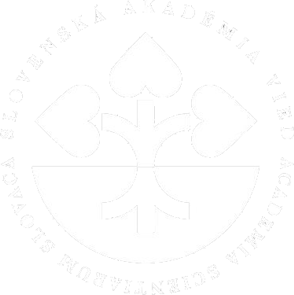Department of Endocrine Regulations and Psychofarmacology
Research Topic
Scientific and research activities at the Department of Endocrine Regulations and Psychopharmacology are focused on study of mechanisms involved in the pathogenesis of mental disorders, cancer, cardiovascular and neurological diseases as well as metabolic disorders and reproductive dysfunctions. The Department consists of three laboratories (Laboratory of Molecular Endocrinology, Laboratory of Pharmacological Neuroendocrinology and Laboratory of Metabolic Regulation) involving four scientific teams.
The main focus of the research is to:
- examine of atypical effects of hormones
- study the nature and function of nuclear receptors in relation to chemoprevention and the therapy of cancer diseases
- study the negative effects of stress in both humans and animals
- reveal the new neurobiological markers of depressive disorder and schizophrenia, evaluating of the effectiveness of new psychotropic drugs
- evaluate the effects of nanoparticles on the endocrine (reproductive) and immune system
- reveal the role of endocrine disruptors, paracrine and autocrine factors in the regulation of ovarian processes
- investigate the role of angiotensin II and oxytocin in the pathogenesis of hypertension and metabolic diseases
- explore the regulatory mechanisms of metabolism and expansion of the adipose tissue
Research Team

MSc in Biology (2005), Dr. rer. Nat in Animal Physiology and Etology (2007), PhD in Animal Physiology (2009)
Since 2013: Independent Researcher (IIa) at the Institute of Experimental Endocrinology, Slovak Academy of Sciences, Bratislava, Slovakia
Since 2017: Head, Department of Endocrine regulations and Pychopharmacology, Institute of Experimental Endocrinology, Biomedical Reasearch Center, Slovak Academy of Sciences, Bratislava, Slovakia
Expertise: neuroendocrinology, behavioral neuroscience
In her research work, she investigates atypical effects of hormones, negative consequences of stress and effectiveness of new psychotropic drugs. She has brought several original findings on new atypical effects of hormone aldosterone in relation to mood disorders. She was the main player in the team work resulting in the development of two new animal models of depression based on subchronic treatment with aldosterone and on tryptophan depletion.
Members of the Department:
Principal investigators:
Ing. Július Brtko, DrSc.
Prof. PharmDr. Daniela Ježová, DrSc.
Ing. Štefan Zórad, CSc.
Researchers:
Mgr. Soňa Scsuková, CSc.
Mgr. Alžbeta Bujňáková Mlynarčíková, PhD.
Ing. Katarína Kršková, PhD.
Mgr. Dana Macejová, Ph.D.
Dr. Eliyahu Dremencov, PhD.
RNDr. Ján Graban, PhD.
RNDr. Agneša Puhová, PhD.
MUDr. Daniela Kapsdorfer, PhD.
Ing. Lucia Toporová, PhD.
RNDr. Lucia Karailievová, PhD.
PharmDr. Katarína Hrivíková, PhD.
RNDr. Magdaléna Chmelová, PhD.
RNDr. Peter Karailiev, PhD.
PhD. students:
PharmDr. Zuzana Romanová
Mgr. Henrieta Oravcová
Mgr. Mahdi Bozorgnia (Irán)
Technicians:
Ľudmila Žilavá
Slávka Gorčíková
Dana Zemeková
UNveiling the MEchanism(s) underlying the switch to mania during antidepressant treatment: The role of glutamate. Project No.: ERANET NEURON II/2018/569/UNMET, principal investigator at the BMC SAS: Daniela Ježová. Duration: 1.7.2019 / 30.6.2023.
The role of specific cell-types of the median raphe in behavior: the excitatory vesicular glutamate transporter 3 and the inhibitory GABA. Project No.: Bilateral project with Hungarian Academy of Sciences, principal investigator at the BMC SAS: Daniela Ježová. Duration: 1.1.2019 / 31.12.2022.
Identification of psychological and somatic markers in relation to vulnerability to stress and analysis of the effectiveness of psychological interventions. Project No.: APVV-17-0451, principal investigator at the BMC SAS: Daniela Ježová. Duration: 1.8.2018 / 31.12.2022.
Bridge between the mental state and neuroendocrine function of mother and her child: the mechanisms involved. Project No.: APVV-18-0283, principal investigator: Daniela Ježová. Duration: 1.7.2019 / 30.3.2023.
Interrelationships between endocrine and mental characteristics of women in reproductive age. Project No.: VEGA 2/0022/19, principal investigator: Daniela Ježová. Duration: 1.1.2019 / 31.12.2022.
Potential risk of use of analogs of endocrine disruptor Bisphenol A: determination of cellular and molecular effects in a spectrum of in vitro gonadal cell cultures. Project No.: APVV-18-0150, principal investigator: Alžbeta Bujňáková Mlynarčíková. Duration: 1.7.2019 / 30.06.2022
Cardiometabolic effects of Mas receptor stimulation by modulation of the renin-angiotensin system – the key role of angiotensin-converting enzyme 2. Project No.: APVV-20-0421, principal investigator: Štefan Zorad. Duration: 1.7.2021 / 30.6.2025.
Regulation of preadipocyte differentiation and adipocyte metabolism by oxidative stress in rat and human tissue culture. Project No.: VEGA 2/0160/20, principal investigator: Štefan Zorad. Duration: 1.1.2020 / 31.12.2022.
Impact of selected metal nanoparticles on steroidogenesis: comparison of in vitro models. Project No.: VEGA 2/0162/20, principal investigator: Soňa Scsuková. Duration: 1.1.2020 / 31.12.2022.
In silico and in vitro investigation of novel nuclear retinoid X receptor (RXR) ligands as potential anti-tumour agents. Project No.: Austrian-Slovakian grant 2019-10-15-009, principal investigator: Július Brtko. Duration: 1.5.2020 / 30.4.2023.
Multidrug resistance of leukemia cells – Phenotype caused by interference of multimodal molecular reasons. Project No.: APVV-19-0093, investigators: Július Brtko, Dana Macejová. Duration: 1.7.2020 / 31.5.2024.
Molecular mechanisms of trialkyl-/triaryltin isothiocyanates’ and carboxylates’ antitumour properties – novel ligands of nuclear retinoid X receptors in rat mammary gland carcinomas and human tumour cell lines. Project No.: APVV-20-0314, principal investigator: Dana Macejová. Duration: 1.7.2021 / 30.6.2025.
Molecular regulatory mechanisms and therapeutic potential of retinoid X receptor activation by triorganotin compounds in relation to breast cancer treatment. Project No.: VEGA 2/0116/21, principal investigator: Dana Macejová. Duration: 1.1.2021 / 31.12.2023.
Potential risk of use of analogs of endocrine disruptor Bisphenol A: Determination of cellular and molecular effects in a spectrum of in vitro gonadal cell cultures. Project No.: APVV-18-0150, principal investigator: Alžbeta Bujňáková Mlynarčíková. Duration: 1.7.2019 / 30.12.2022.
Enhancement of endocannabinoid signaling as a promising target for the treatment of stress-related psychiatric disorders. Project No.: VEGA 2/0158/22, principal investigator: Nataša Hlaváčová. Duration: 1.1.2022/ 30.12.2025.
List of selected publications for the last 5 years:
Romanova Z, Hlavacova N, Jezova D. Psychotropic Drug Effects on Steroid Stress Hormone Release and Possible Mechanisms Involved. Int J Mol Sci. 2022;23(2):908. (IF=6.03).
Romanova Z, Karailievova L, Garafova A, Hlavacova N, Oravcova H, Jezova D. Testosterone but not cortisol concentrations in hair correlate between mothers and their prepubertal children under real-life stress conditions. Psychoneuroendocrinology. 2022; 143:105844. (IF=4.69).
Jezova D, Karailiev P, Karailievova L, Puhova A, Murck H. Food Enrichment with Glycyrrhiza glabra Extract Suppresses ACE2 mRNA and Protein Expression in Rats-Possible Implications for COVID-19. Nutrients. 2021;13(7):2321. (IF=5.72).
Karailiev P, Hlavacova N, Chmelova M, Homer NZM, Jezova D. Tight junction proteins in the small intestine and prefrontal cortex of female rats exposed to stress of chronic isolation starting early in life. Neurogastroenterol Motil. 2021;33(6):e14084. (IF=3.59).
Bujnakova Mlynarcikova A, Scsukova S. Bisphenol analogs AF and S: Effects on cell status and production of angiogenesis-related factors by COV434 human granulosa cell line. Toxicol Appl Pharmacol. 2021;426:115634. (IF=4.22)
Izakova L, Hlavacova N, Jezova D. Steroid stress hormone changes throughout the menstrual cycle: A rise in evening aldosterone concentration in early luteal phase precedes the symptoms of premenstrual syndrome. J Neuroendocrinol. 2021;33(10):e13043. (IF=3.63).
Dremencov E, Jezova D, Barak S, Gaburjakova J, Gaburjakova M, Kutna V, Ovsepian SV. Trophic factors as potential therapies for treatment of major mental disorders. Neurosci Lett. 2021; 764:136194. (IF=3.04)
Dobrocsyova V, Slamkova M, Krskova K, Balazova L, Suski M, Olszanecki R, Cacanyiova S, Zorad S. AVE0991, a Nonpeptide Angiotensin 1-7 Receptor Agonist, Improves Glucose Metabolism in the Skeletal Muscle of Obese Zucker Rats: Possible Involvement of Prooxidant/Antioxidant Mechanisms. Oxid Med Cell Longev. 2020;2020:6372935. (IF=5.076).
Dvořák Z, Kopp F, Costello CM, Kemp JS, Li H, Vrzalová A, Štěpánková M, Bartoňková I, Jiskrová E, Poulíková K, Vyhlídalová B, Nordstroem LU, Karunaratne CV, Ranhotra HS, Mun KS, Naren AP, Murray IA, Perdew GH, Brtko J, Toporova L, et al. Targeting the pregnane X receptor using microbial metabolite mimicry. EMBO Mol Med. 2020;12(4):e11621. (IF=8.82).
Izakova L, Hlavacova N, Segeda V, Kapsdorfer D, Morovicsova E, Jezova D. Salivary aldosterone, cortisol and their morning to evening slopes in patients with depressive disorder and healthy subjects: acute episode and follow up six months after reaching remission. Neuroendocrinology. 2020; 110(11-12):1001-1009. (IF=4.27).
Strouhalova D, Macejova D, Mosna B, Bobal P, Otevrel J, Lastovickova M, Brtko J, Bobalova J. Down-regulation of vimentin by triorganotin isothiocyanates-nuclear retinoid X receptor agonists: A proteomic approach. Toxicol Lett. 2020;318:22-29. (IF=3.56).
Krskova K, Balazova L, Dobrocsyova V, Olszanecki R, Suski M, Chai SY, Zorad Š. Insulin-Regulated Aminopeptidase Inhibition Ameliorates Metabolism in Obese Zucker Rats. Front Mol Biosci. 2020 7:586225. (IF=4.18).
Buzgoova K., Balagova L., Marko M., Kapsdorfer D., Riecansky I., Jezova D.: Higher perceived stress is associated with lower cortisol concentrations but higher salivary interleukin-1beta in socially evaluated cold pressor test. Stress. 23(3): 248-255, 2020. (IF=3.102).
Chmelova M., Balagova L., Marko M., Vrankova S., Cebova M., Jezova D., Riecansky I., Hlavacova N.: Behavioral alterations induced by post-weaning isolation rearing of rats are accompanied by reduced VGF/BDNF/TrkB signaling in the hippocampus. Neurochem Int. 129:104473, 2019. (IF=3.994).
Jezova D., Balagova L., Chmelova M., Hlavacova N.: Classical steroids in a new fashion: focus on testosterone and aldosterone. Current Protein & Peptide Science. 20(11): 1112-1118, 2019. (IF=1.885).
Ustohal L., Hlavacova N., Mayerova M., Ceskova E., Jezova D.: Aldosterone and aldosterone/cortisol ratio is higher in serum of long-term compared to first episode schizophrenia patients: A pilot study. J Psychiatr Res. 104:46-49, 2018. (IF=4.00).
Simko F, Baka T, Krajcirovicova K, et al. Effect of Melatonin on the Renin-Angiotensin-Aldosterone System in l-NAME-Induced Hypertension. Molecules. 2018;23(2):265. (IF=3.098).
Bujnakova Mlynarcikova A, Scsukova S. Simultaneous effects of endocrine disruptor bisphenol A and flavonoid fisetin on progesterone production by granulosa cells. Environ Toxicol Pharmacol. 2018;59:66-73. (IF=2.77).
Simko F, Baka T, Poglitsch M, et al. Effect of Ivabradine on a Hypertensive Heart and the Renin-Angiotensin-Aldosterone System in L-NAME-Induced Hypertension. Int J Mol Sci. 2018;19(10):3017. (IF=3.96)







